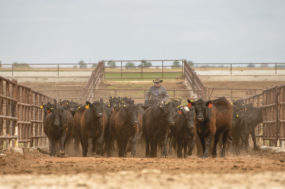It’s a myth that’s been passed around like mono at the drive-in.
Sure, there have been epic change elections in America’s history. The 1864 election was one. The 1932 election was another. In both instances, our nation stood at a precipice of disaster and made decisions that shaped the country for generations.
But galvanizing political times like those are so rare. Truth is: Each modern election has grown more similar to the last. The debates and attack ads are the same. Campaign pledges are repeated (and broken) ad nauseam.
The same battleground states decide the November results. Yet the frustration surrounding the political process remains. Meanwhile, true issues related to the states and people are ignored.
In 2016, agriculture is one of those marginal issues and has been for at least six election cycles. Ag policy is nonexistent in all of the candidates’ stump speeches. You can dig out some of their ag policies on their websites (hidden usually under titles such as “Improving Rural Economies”). But none of the candidates use them to rally their troops.
Think about that for a moment. The U.S., a nation of 330 million people with just 3.2 million farmers and ranchers and just 2.1 million farms, produces more corn, beef and poultry, the second most volume of milk and pork, and third most wheat and cotton in the entire world – not to mention countless crops that make it the breadbasket of the globe.
And we hear practically nothing from presidential candidates about policies that will affect agriculture.
Most ranchers and farmers know how they want to vote. They’re smart enough to gather the facts suggesting where candidates will lean on matters such as federal land and water policy, antibiotics in livestock, endangered species and global trade of commodities.
But more importantly, the 98 percent of the population removed from agriculture hears nothing about the issue. Instead, they blithely go on unaware of policies that jeopardize the producer and the food they produce.
It won’t change in this election – and probably not in the next. So it’s going to make your job tougher. You have to ask the questions that reveal answers on policy.
You have to figure out which candidate knows agriculture. Perhaps more importantly, you’ll need to be the voice that demands accountability in those policies so the future of ag production isn’t ignored.
Maybe it won’t be the most crucial election in our lifetime. But there’s enough at stake that will determine your future. ![]()

-
David Cooper
- Managing Editor
- Progressive Cattleman magazine
- Email David Cooper








